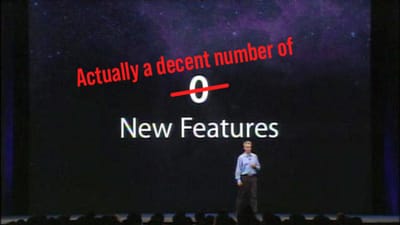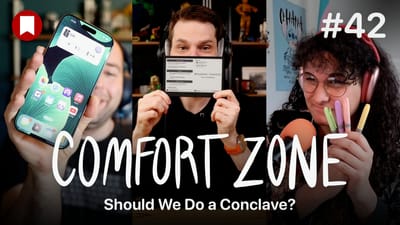Apple Doesn't Operate in a Bubble, They Simply Know How to Communicate to their Customers
Does Apple operate in a bubble? This is the question posed by Leo Laporte on this week's episode of MacBreak Weekly. Leo's been going on these "Android is objectively better than iOS" rants for a while now, so it didn't surprise me that he said something like this. But his sentiment, that Apple somehow doesn't get judged by the same rules as everyone else, is not unique to him and is something I've seen from many other people as well. It's also simply not true.
In many cases, Apple is indeed not the first company to implement new technologies in their hardware. Looking at just the iPhone, you could point to huge screens, LTE data connections, and NFC as notable omissions that only showed up on the iPhone after their competitors had added them. And yet, iPhones continued to sell well; obviously Apple lives in a bubble and their users don't understand what they're missing.
This may sound bad to some people who love "openness" but Apple is much better at managing their users than any other tech company. Critical parts of being a good manager are having a strong vision and possessing clear communication skills to impart that vision on your team.
If we look at Apple through the lens of a manager, they're the type of boss you love to have, one who knows exactly what needs to get done and provides you the tools and instructions on how to do it. Android makers, on the other hand, are like a boss who is too hands-off. They say, "here's a ton of tools, figure out how to use them and see what you come up with." Yes, that can be fun every now and then, but the team that has the defined vision that is better communicated to them will always be more productive than the team that has to make their own way.
This is why Apple can release a phone with NFC 4 years after the first Android phone had it. This is why they can tie that feature to a mobile payment system called Apple Pay years after Android phones had Google Wallet. This was a particular point Leo was railing against, saying in summary, "I've been using NFC on my Android phones for years, and now Apple adds it and people act like Apple invented the damn thing!"
Look back the Apple-as-manager metaphor and it starts to make sense. Apple said "here is NFC, you can use it for Apple Pay which is an easier and more secure way to make payments than your old plastic cards." It's a clear message that makes people understand what the feature is and how they can use it to make their lives better. Android device makers took the hands-off approach and said "here is NFC, it's a near-field communication technology that is kind of like bluetooth but super short range. You can do so much with it!"
As technically minded people, we don't always need or want clear direction as to how to use a feature. We like the open-ended nature of the "here's a feature, see what you can do with it" pitch. But most people aren't like that. Yes, you can link your phone to a speaker, send images from your DSLR to your phone, or make payments with your NFC-enabled Android phone, but you probably won't.
Apple's focused development of new features as well as their clear communication with their customers is what allows them to always make a big splash with new features, even if they are not the first to have them. Yes, Android phones tend to have features before the iPhone, but because of their poorly communicated benefits and often limited desirability, they might as well not even exist for most people.


